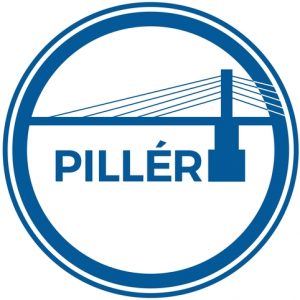

The EU Fisheries Data Collection Framework (DCF) was established in 2000 to enable EU Member States to collect fisheries data in support of the Common Fisheries Policy (CFP) through the provision of scientific advice. Mandatory data collection is governed by Regulation (EU) 2017/1004, as well as by the Multiannual Union Programme (EU MAP), established by the European Commission and applicable from 2022, which sets out the rules for the collection and management of biological, environmental, technical, and socio-economic data in the fisheries and aquaculture sectors.
In accordance with Regulation (EU) 2021/1139 establishing the European Maritime, Fisheries and Aquaculture Fund (EMFAF), each Member State must draw up a national programme and during its implementation they must collect data within the DCF. Accordingly, two calls for proposals have been launched under the Hungarian Fisheries Operational Programme Plus (MAHOP Plus) to support the collection, management and use of data on fish farming: MAHOP Plus-1.2.2-2024 aims to establish a framework for data collection related to fisheries management, while MAHOP Plus-1.2.1-2024 aims to support the collection, management and use of data related to fisheries management.
The data and information collected under the DCF will provide insights into the state of play in the fisheries sector and support the identification of development needs. This enables the implementation of development measures that are best aligned with sectoral priorities during funding periods.
To effectively leverage available funding opportunities, it is essential that sector representatives have access to reliable and comprehensive data to substantiate development needs in both domestic and international funding applications. Likewise, researchers publishing in international journals on aquaculture-related topics are also dependent on the availability of such data. Therefore, systematic data collection is critical not only for policymakers, producers, and other sector stakeholders, but also for the research community.
During the implementation of the project, the data collection and data management systems will be improved. This includes preparing data collection plans and reports on the sustainability of aquaculture production, as well as task related to the conduction of necessary data collections. These activities involve updating the DCF National Work Plan where needed, and carrying-out data collections related to aquaculture and fish processing. Furthermore, the project will include representative data collection for pond-based and intensive fish farming, along with pilot studies to assess the environmental sustainability of aquaculture farms, identify and evaluate ecosystem services at the sector level, and investigate animal welfare aspects in intensive fish production.
It also extends to the development of publicly accessible pages on the website of AKI and on its Agricultural Information Portal, which integrates and visualizes available data, and allows users to access, query, and explore these data, along with evaluations and background materials.
The project encompasses tasks related to the collection of market information data concerning the fish product value chain, such as the regular survey and publication of producer (farm-gate) prices of most typically produced fish species in Hungary, as well as consumer market, retail and online store prices of certain popular fish products. It also includes gaining insights into the fish purchasing habits of the domestic population and the economic activities of Hungarian fish traders.
As part of the tasks aimed at comprehensively examining the Hungarian fisheries sector, regular forecasts are made of gross domestic fish production. The annual domestic fish consumption and the annual production value of the fish farming sector are calculated. The foreign trade flows of fishery and aquaculture products, the market processes of the domestic fish product chain, and the financial situation of the sector stakeholders are analysed.
In addition to the above, the tasks extend to the assessment and analysis of the experiences of MAHOP Plus beneficiaries and stakeholders with the institutional support system, as well as the innovation potential of the aquaculture sector.
Regularly produced publications throughout the implementation of the project will support evidence-based policymaking by fisheries authorities and other relevant governmental bodies involved in fisheries management. These publications also provide guidance for producers and stakeholders in the fisheries sector and contribute to raising public awareness.
Furthermore, the project ensures the dissemination of results and knowledge related to the fisheries sector through public events. It also supports the training and continuous professional development of project participants by facilitating their participation in expert meetings, events, scientific conferences, study visits, and training courses.

Title
MAHOP Plus DCF Fisheries Data Collection
Project acronym
DCF3
Project ID
MAHOP_PLUSZ-1.2.1-24-2024-00001
Beneficiary
Institute of Agricultural Economics Nonprofit Ltd. (AKI)
Budget
1 390 600 000 Ft
Budget
100%
Intensity
1 January 2024 to 31 December 2029.



 HU
HU
